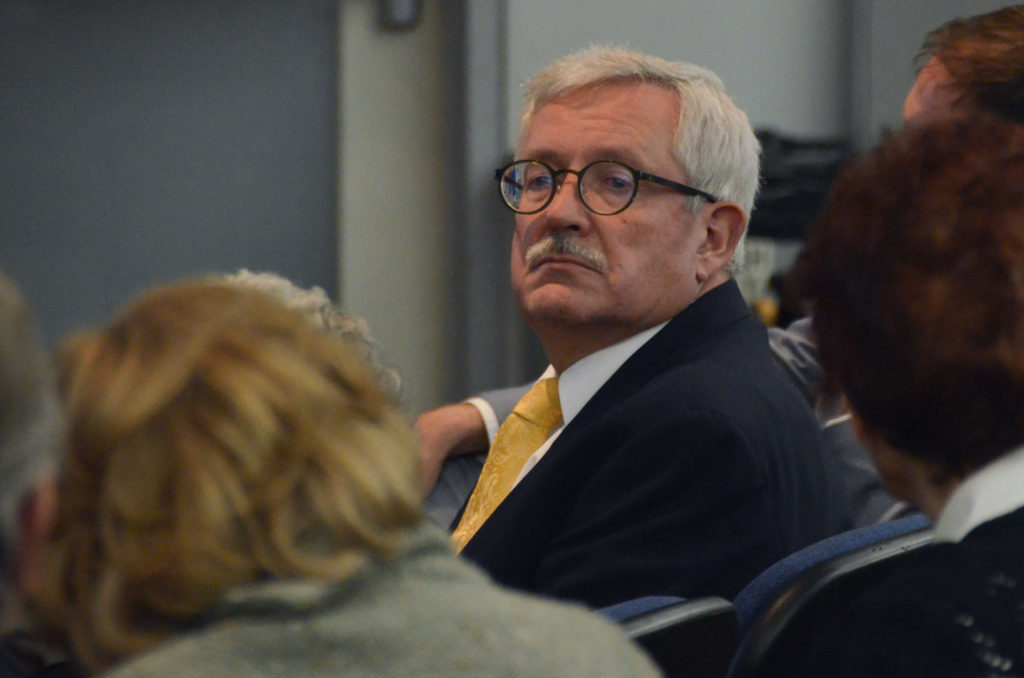The Elliott School of International Affairs hosted an event Tuesday about the legacy of one of the University’s “most prestigious” alumni – a man who saved thousands during the Holocaust.
The event honored alumnus Carl Lutz, a Swiss diplomat who graduated from the Columbian College of Arts and Sciences in 1924 and who is credited with saving 62,000 Jewish Hungarians during the Holocaust. The event was sponsored by the Institute for European, Russian and Eurasian Studies and received support from the Embassy of Switzerland in the United States.
The gathering featured remarks from Martin Werner Dahinden, the ambassador of Switzerland to the United States, and Agnes Hirschi, Lutz’s step-daughter. Elliott School Dean Reuben Brigety kicked off the event by talking about how important it is for students to hear stories of courage like that of Lutz.
“Until ‘never again’ really is ‘never again,’ we will continue to talk about the lessons of the past to honor those who had the courage to act,” Brigety said.
After remarks from the dean, Dahinden recognized audience members at the event who Lutz saved during World War II. Dahinden said Lutz negotiated permission to issue 8,000 protective orders but instead issued tens of thousands more orders and numbered them all from one to 8,000 to bypass Nazi rules.
“Lutz was a hero,” Dahinden said. “Heroes are ordinary people who are doing extraordinary things, and we, in Switzerland, are proud of what he was doing.”
Dahinden said Lutz also set up 76 safe houses in Budapest, Hungary, where he was stationed, and declared the houses to fall under Swiss protection.
Lutz “had the courage to rely on his personal judgment,” he said.
Katrina Lantos Swett, the president of the Lantos Foundation for Human Rights, urged people to study Lutz’s legacy and learn from his example, calling him “a diplomat who dared to step out of the box.”
Frederic Hayat, a member of the G.I.L., Reform Jewish Community of Geneva, Switzerland, said Lutz immigrated to the United States when he was 18, began working at the Swiss Legation in D.C. and decided to study diplomacy at GW.
Hayat said Lutz’s focus on bending the Nazi Party’s rules about protective orders stemmed from his belief in the righteousness of his actions.
After Hayat’s remarks, Hirschi took the stage to talk about her step-father’s impact and the resistance he faced in his native country.
“In Switzerland, he was far from being celebrated from a hero,” she said.
It took years before the public began recognizing Lutz for his work. He was honored at a 1998 event in Los Angeles with five other diplomats, and in 2004, the Lutz Foundation in Budapest was founded. In 2014, GW awarded Lutz a President’s Medal.
Hirschi said Lutz’s actions were driven by a sense of empathy and divine inspiration.
“When he saw the misery of the Jews in Budapest, he felt that he must have to act,” she said. “He felt like God had given him his mission.”





